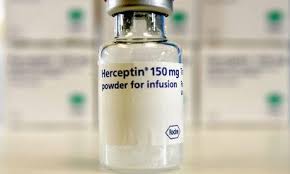Mylan/Biocon Herceptin biosimilar faces EU delay

Mylan and Biocon’s Herceptin biosimilar has hit problems in Europe after regulators called for improvements at its manufacturing plant.
The European setback comes just ahead of a red letter day at the FDA.
Its Oncologic Drugs Advisory Committee (ODAC) is to discuss Mylan’s filing for the Herceptin biosimilar MYL-1401O tomorrow afternoon, along with Amgen’s biosimilar of Roche’s cancer drug Avastin (bevacizumab).
Herceptin and Avastin represent two out of three big-selling drugs from Roche that are facing cheaper competition for the first time - last year, the drugs each generated sales approaching $7 billion.
But Mylan’s drug potentially offering a cheaper alternative to Herceptin has hit trouble with European regulators who inspected Biocon’s manufacturing plant in Bangalore.
The news from Biocon throws into question whether the company will be able to launch the Herceptin biosimilar in Europe later this year as previously anticipated.
EU regulators began reviewing the biosimilar last summer - a process that typically takes just over a year - but a pre-approval inspection has thrown up some issues, the company admitted.
Officials from France’s ANSM, working on behalf of the European Medicines Agency, said that a follow-up inspection was necessary to ensure “corrective and preventive actions” had been carried out at the plant.
The plant will not be able to supply the European market until it makes the corrections, giving Roche further breathing space before cheaper competition hits the market.
According to a statement from Biocon, the plant in question also produces biosimilars of Amgen’s Neulasta (pegfilgrastim), used to boost white blood cells after chemotherapy, and Sanofi’s Lantus (insulin glargine).
The ANSM inspectors said that plants supplying raw pharmaceutical materials did comply with regulations, however.
A Biocon spokesperson said: “Biocon, with its partner Mylan, will work with the French and European regulatory authorities with regard to the follow-up inspection of the drug product facility and the Marketing Authorisation Applications with the goal of an early reinspection.”
Herceptin’s patent expired in Europe back in 2014, giving biosimilar manufacturers the opportunity to launch the cheaper copycat drugs as soon as they are approved.
In the US the patent expires in 2019, and biosimilar manufacturers have faced delays in launching their competitors because of the intricacies of the country’s legal system.
However, the US Supreme Court ruled last month that manufacturers would no longer have to wait for six months after approval before launching biosimilars.











